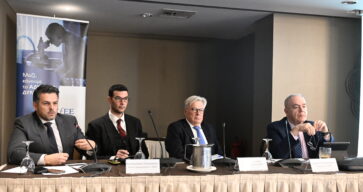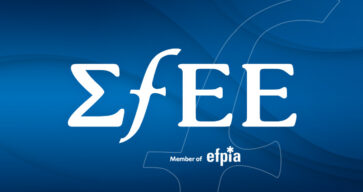Omnibus draft law: an obstacle to reforms and growth
Announcement
Omnibus draft law: an obstacle to reforms and growth
Athens, 13 June 2018.- Ahead of the parliamentary vote on the omnibus draft law with the prior actions for the closure of the fourth review, SFEE would like to point out the following:
After six years of no effective implementation of structural reforms in the area of pharmaceuticals and unsuccessful control of pharmaceutical expenditure, the failed tool of the “temporary” claw-back mechanism is set to remain in place for another four years until 2022. At the same time, potential additional expenditure is foreseen, arising from the upward adjustment of the public pharmaceutical expenditure ceiling in the event of GDP growth. Conversely, expenditure will be reduced in the event of GDP decline.
Every year that a closed budget has been implemented in public pharmaceutical spending (since as a early as 2012) has been a clear confirmation of the failure, complacency and inaction of the system in controlling pharmaceutical spending. The claw-back mechanism has failed. It has failed because it is applied on incorrectly identified actual patient needs; it has been used to make up for the failure of the government to control expenditure; and it has been serving as an additional item of government revenue. From claw-back alone, the state has collected over €3 billion from pharmaceutical companies in six years and, adding the mandatory rebates, this amount exceeds €5 billion! The coverage of uninsured citizens is entirely funded by pharmaceutical companies, making the pharmaceutical industry an additional source of public healthcare financing.
On the other hand, the determination of public pharmaceutical expenditure based on a 25% lower GDP does not reflect actual data or the country’s actual healthcare needs. We must stop managing misdetermined expenditure using the failed tool of claw-back.
The expansion of the claw-back does not only concern pharmaceutical companies whose viability is now more threatened than ever; it is also a matter that has implications for public health and equal and unhindered access of patients to their treatments.
Meanwhile, the absence of a national strategy to increase generic penetration has led and continues to lead to the implementation of wrong policies to promote the use of generics, which not only intensify market distortions but are also counterproductive and possibly raise competition concerns.
The pharmaceutical industry has consistently supported the view that increasing generic penetration will bring savings to the system, thereby creating room for innovation, while on the other hand generic penetration incentives should not be at the expense of non-generics. There is an urgent need for a national campaign to raise awareness of the reliability of generics among healthcare professionals and the public. At the same time, the MoU commitment regarding prescribing by active substance, which has not brought any significant gain in generic penetration, should be abolished once the MoUs are over and replaced by brand name prescribing. In this manner, all stakeholders in the pharmaceutical market will assume their respective responsibilities, and it is our belief that this will also support generics.
Public Health and Greek patients need straightforward commitments for the future of their health and their unhindered access. For this reason we call for:
– Straightforward commitment as to the absolute amount of pharmaceutical expenditure of EOPYY and hospitals. Exclusively linking expenditure to GDP does not ensure adequate funding.
– Introduction of a diminishing maximum amount of claw-back, or sharing of responsibility for its payment with the state, and finally its abolition.
– Immediate establishment of a special outlay for the uninsured, coming from the welfare budget.
– Exclusion of vaccines from public pharmaceutical expenditure, as they concern prevention, not treatment.
– Coverage of special hospital-only medicinal products in inelastic demand (such as blood derivatives and medicines treating rare diseases) from an additional outlay.



